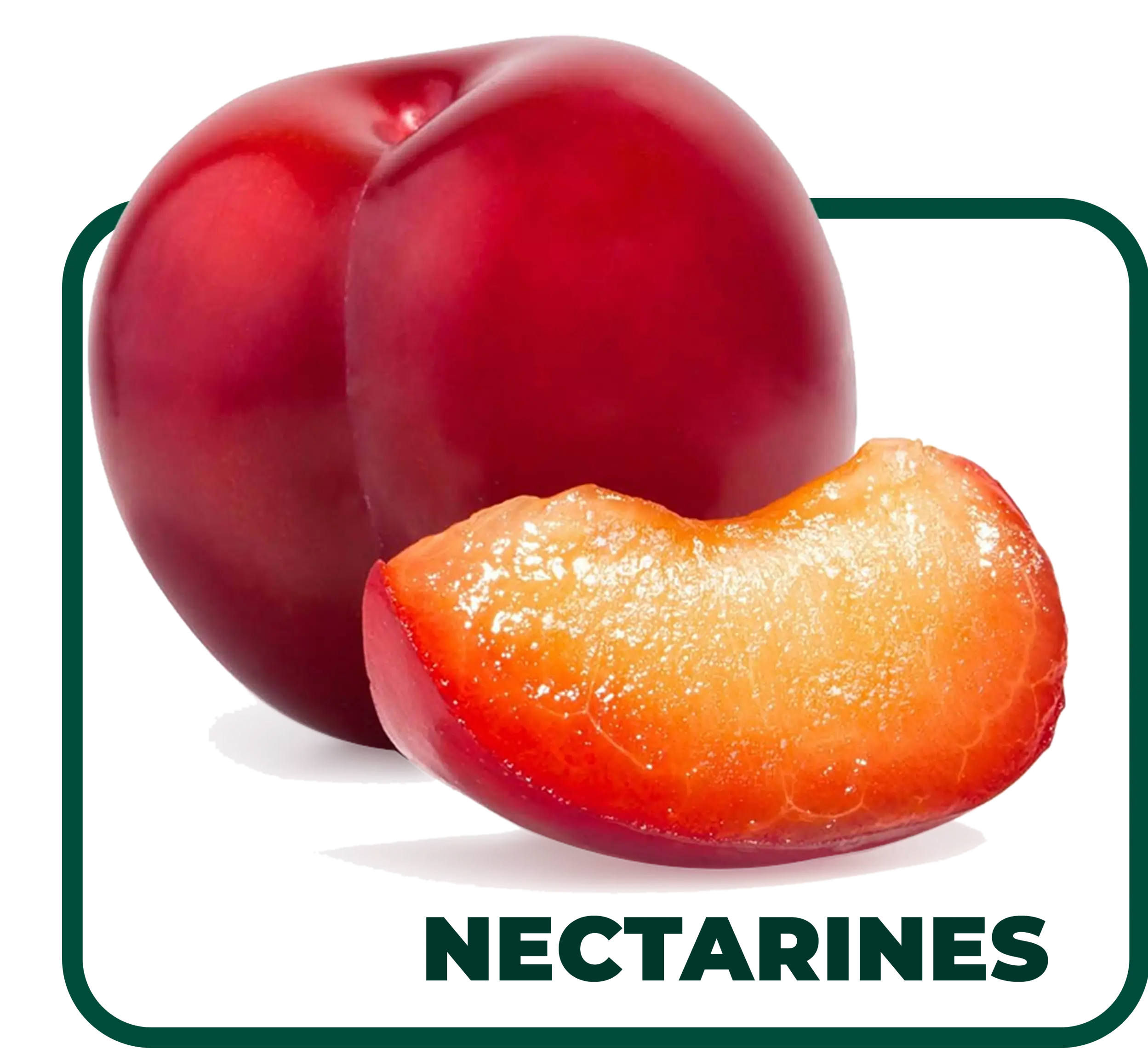
Nectarines
Egyptian nectarines are a delicious and aromatic stone fruit, celebrated for their juicy sweetness and smooth skin. Grown in Egypt’s temperate climate, these nectarines benefit from the country’s abundant sunlight and fertile soils, resulting in fruits that are both flavorful and vibrant. The smooth, non-fuzzy skin and succulent flesh of Egyptian nectarines make them a refreshing choice for a variety of culinary uses.

Nectarines are rich in essential nutrients, providing a wealth of health benefits. They are an excellent source of vitamins A and C, which support healthy skin, vision, and immune function. Nectarines also contain healthy fibers, which aid in digestion and help maintain a healthy weight. Furthermore, nectarines offer potassium, which contributes to heart health by regulating blood pressure, and antioxidants, which help combat oxidative stress and reduce inflammation in the body.
Consuming Egyptian nectarines can positively impact your body in several ways. The high vitamin C content boosts your immune system, helping to prevent illnesses and infections. The fiber in nectarines supports digestive health, promotes regular bowel movements, and can aid in weight management. Potassium helps to maintain healthy blood pressure levels, while antioxidants protect cells from damage and reduce the risk of chronic diseases. Enjoying nectarines can contribute to overall well-being and provide a delicious way to meet your nutritional needs.
Nectarines are typically planted in the early spring, when the risk of frost has passed. They thrive in well-drained soil and require a moderate climate with distinct seasons. The fruit begins to develop in the summer and is usually ready for harvest in late summer to early autumn. The harvest season for nectarines generally spans from July to September, during which time the fruit is carefully picked at its peak ripeness to ensure optimal flavor and texture.
